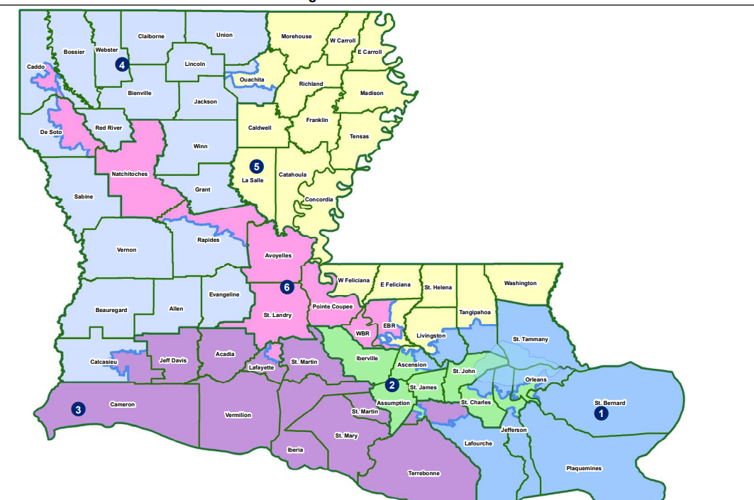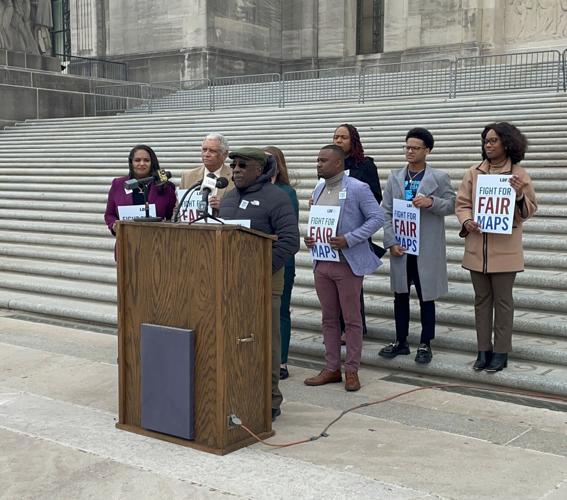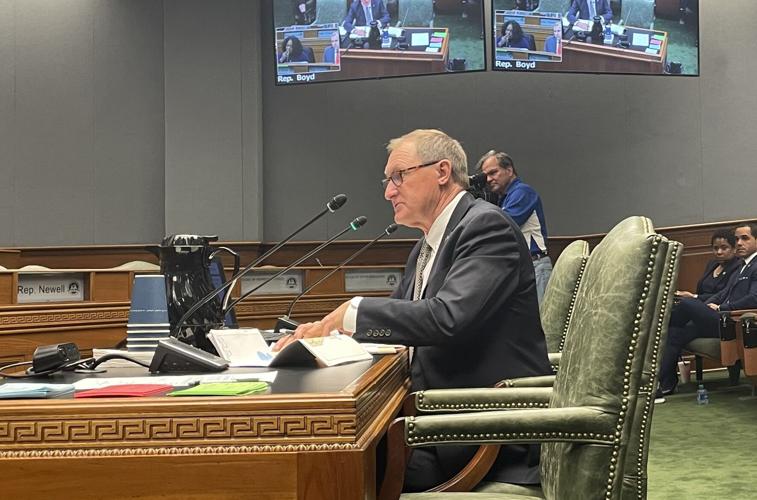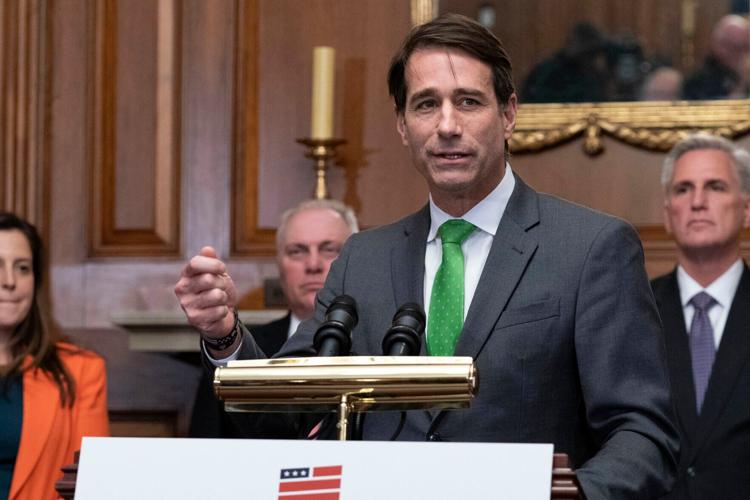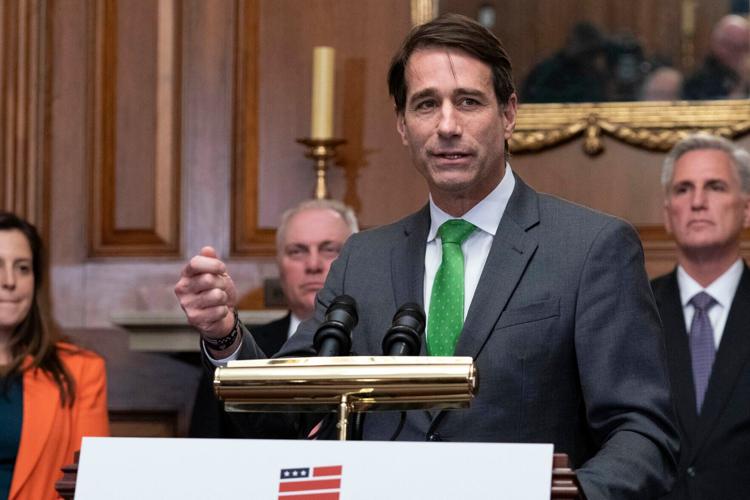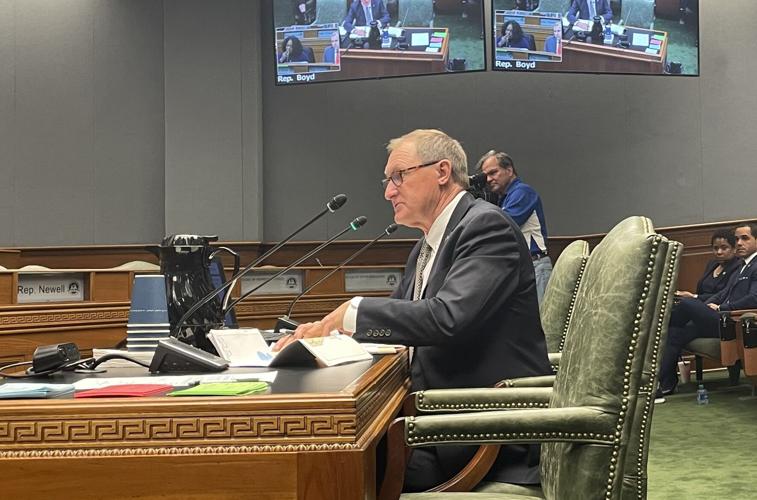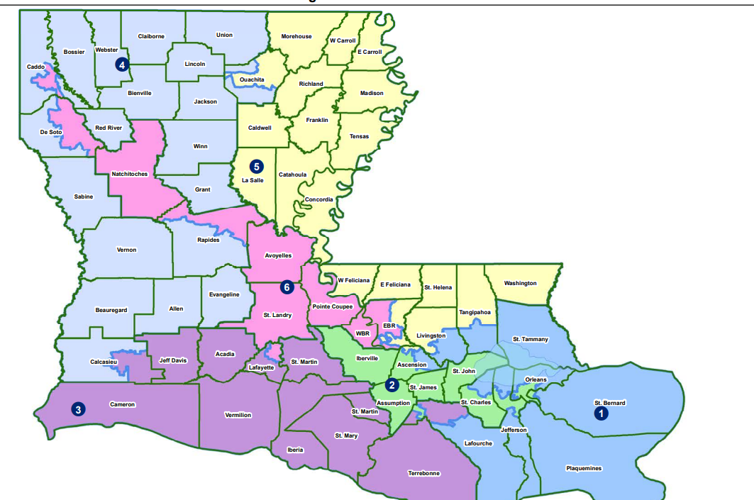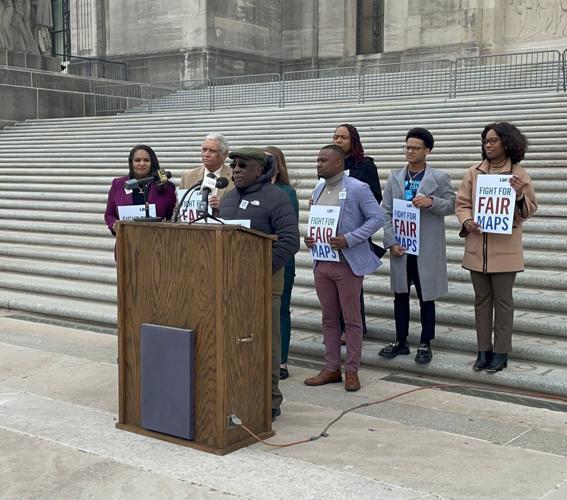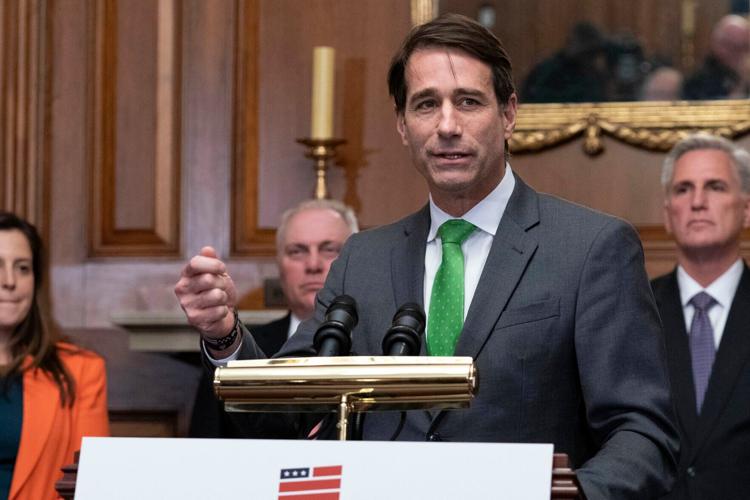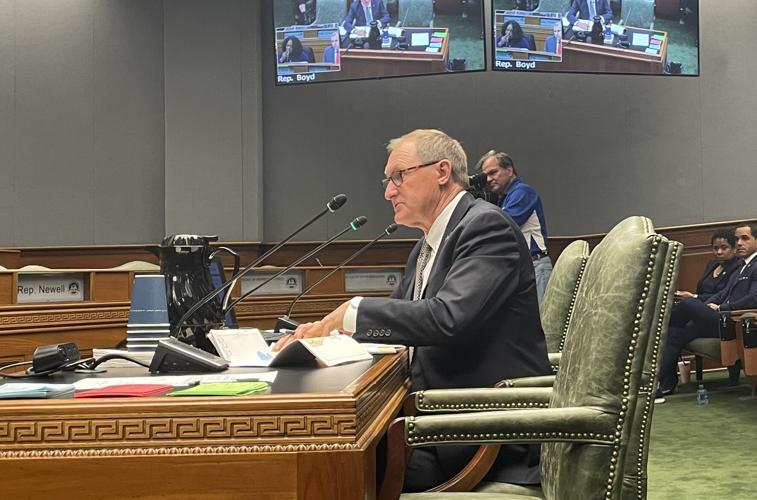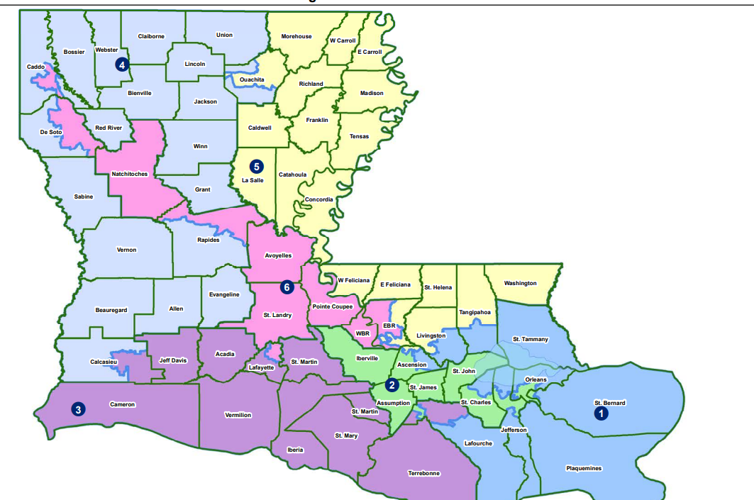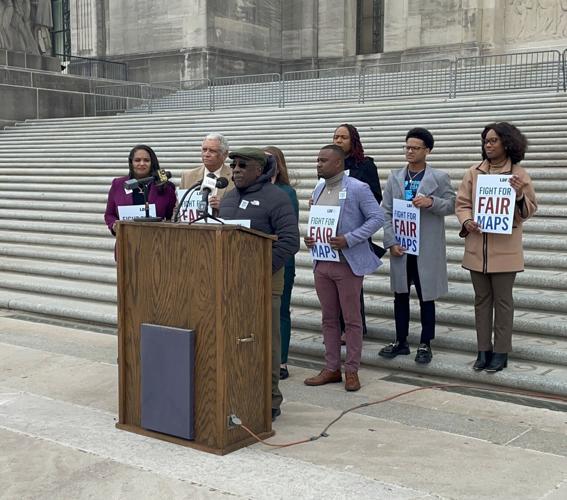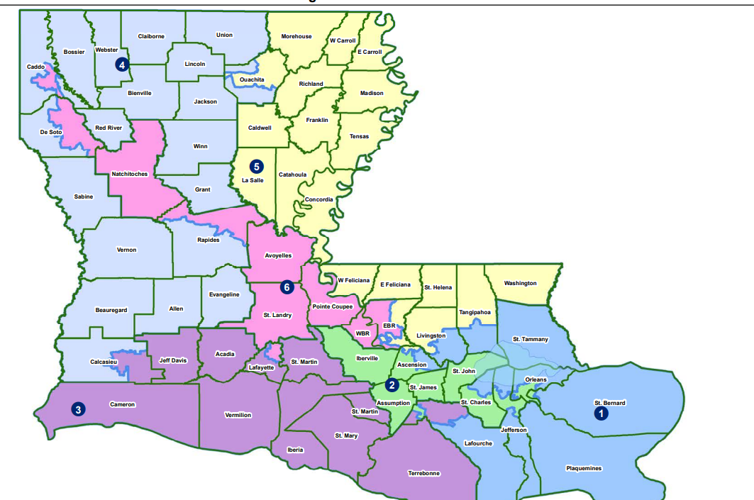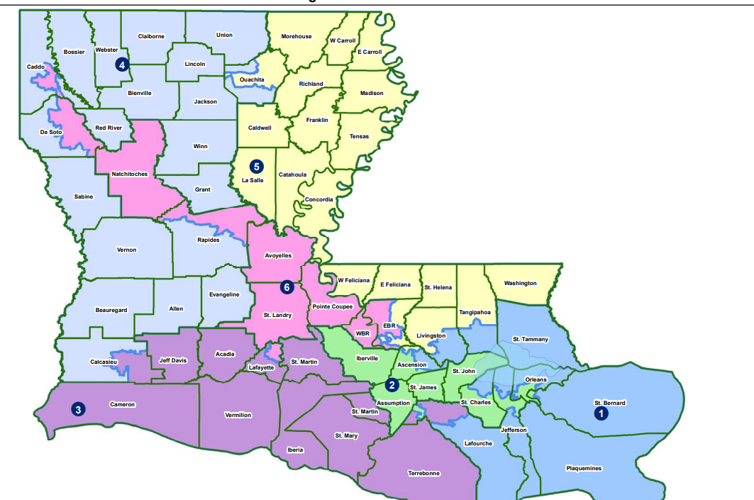WASHINGTON — Atop the minds of all six U.S. House members from Louisiana is a Monday status conference that is expected to chart a path out of the morass created when two federal judges invalidated new election maps that detail who gets to vote for which congressperson this fall.
Louisiana’s five White Republican and one Black Democratic members now have no districts in which to run and hence no idea which voters to court.
Two members of a three-judge panel appointed by the chief judge of the 5th U.S. Circuit Court of Appeals on Tuesday forbade the use of election maps drafted in January by the Legislature to create a second district likely to elect a Black candidate to Congress — a goal intensely sought since the 2020 Census results showed Louisiana’s population is one-third Black.

This map, adopted by the Legislature in January, created a second majority-Black U.S. House district stretching along the Red River. Two federal judges rejected it last week.
Legislators drew the new lines to ensure that the U.S. House’s two top leaders — Speaker Mike Johnson, R-Benton, and House Majority Leader Steve Scalise, R-Jefferson — kept their overwhelmingly White districts intact, to the extent possible. They also wanted to protect Rep. Julia Letlow, R-Start. But that meant putting Rep. Garret Graves, R-Baton Rouge, in a district with mostly Black voters, and a huge number of voters who have not been previously represented by him.
The two federal judges who shot down the Legislature’s maps are U.S. District Court Judges Robert R. Summerhays and David C. Joseph, both nominated by former President Donald Trump. Both said the maps improperly relied primarily on race, and overlooked factors like compactness and "communities of interest."
The third member of the panel, 5th Circuit Judge Carl Stewart, was nominated by former President Bill Clinton. He disagreed, saying the majority’s conclusions were based on cherry-picked facts, and that other factors — such as politics — were not considered.
“It gets very complicated, and not just by the merits of everything, but by the procedural and jurisdictional issues,” said Victoria Wenger, who as counsel with the NAACP Legal Defense and Educational Fund Inc. represents some of the voters wanting a second minority-majority congressional district.
At least two dozen attorneys around the case represent a legion of competing interests: Some want a second Black majority district. Others want to keep a configuration of five White members and one Black one. Others don’t care about the math, but don’t like the Legislature’s most recent map. Still others want to be a part of the litigation, but weren’t allowed.
“The expectation is this is all going to take a trip to the [U.S.] Supreme Court before Louisiana can figure out what map they’re going to use,” said Michael Li, of New York University's Brennan Center Democracy Program. Li isn’t a part of the litigation, but as one of the nation’s foremost redistricting experts, he's watching the case closely.
The panel on Monday could delay the May 15 deadline Louisiana officials say they need the new districts by in order to properly stage the Nov. 4 congressional elections.
The panel also could order a new map immediately drawn by a special master. Or it could pick one of the maps with two Black districts that were proposed previously. Those would impact Johnson, Scalise and Letlow more than Graves. Or the panel could tell the Legislature, which is in session, to create a new map. Or the U.S. Supreme Court could act on one or more of the various appeals.
If the panel’s order is suspended until the mess is sorted out, the elections would be held using the map that the panel rejected last week. The map used in 2022 has been revoked by the Legislature, and thus legally no longer exists.
The panel’s 2-1 majority decision hints, but doesn’t say outright, that they’re not sure Louisiana’s Black population lives close enough together to draw two minority-majority districts while staying true to the guidelines laid out by the courts over the past half century.
Such a move would open another can of worms.
A similar federal panel in November endorsed a decision in a related case in which U.S. District Chief Judge Shelly Dick, of Baton Rouge, an appointee of President Barack Obama, determined Louisiana needs two Black majority districts. Dick ruled that such a map could easily be drawn without violating redistricting standards for compactness and linking communities of interest.
An outcome that returns to the configuration of five White members of Congress and one Black one would require a collateral attack on Dick’s findings, Li said.
“It’s a very conservative panel whose ruling paid little heed to Judge Dick’s ruling," he said. "Whether they’re going to be willing to totally disregard that is the million-dollar question."

